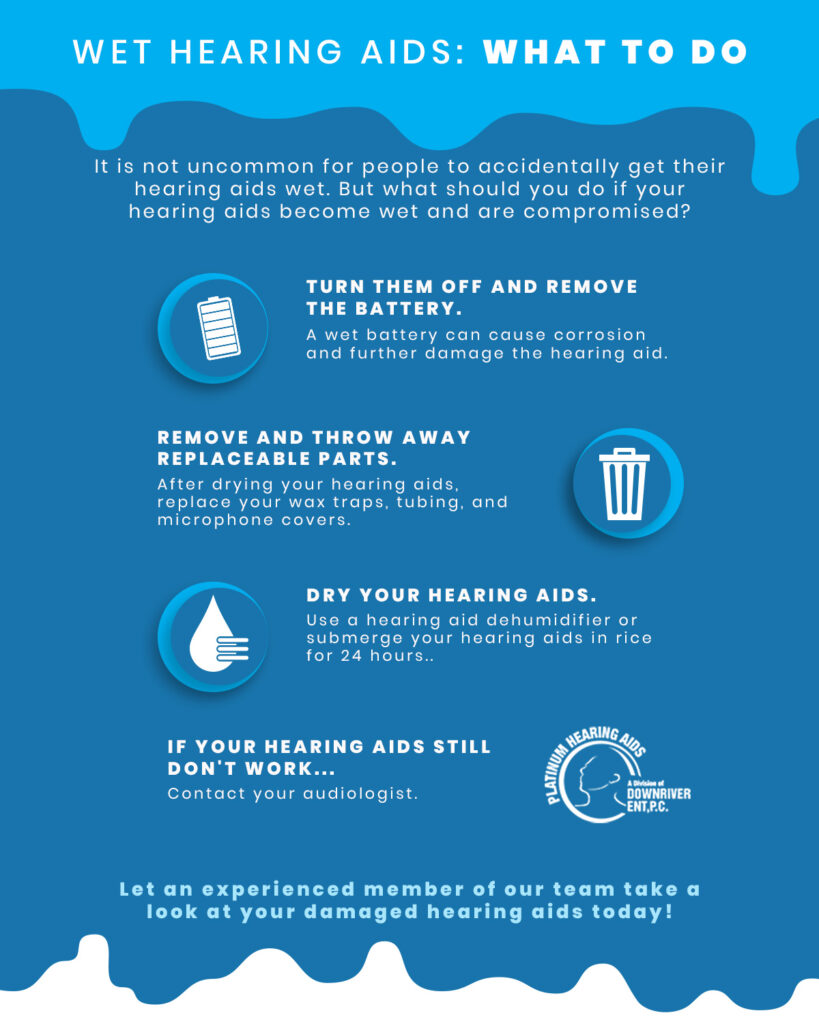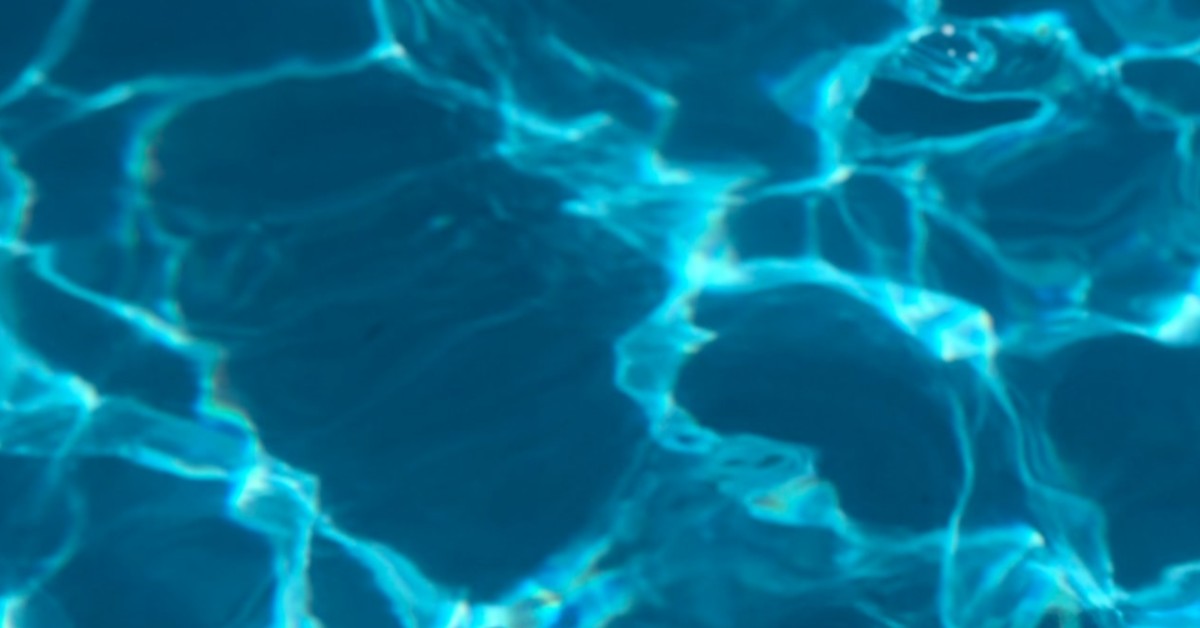As an audiologist in Detroit, we have seen a thing or two when it comes to hearing aid issues. Among the common issues that our clients report to us, one of the most common hearing aid accidents involves exposure to water.
Because hearing aids are so fragile, not to mention expensive, it is important to act quickly when your hearing aids have been exposed to water. In most cases, a quick reaction can be the difference between saving your hearing aids and needing to have them fixed or replaced. Join us in today’s blog post as we discuss what you should do when your hearing aids come in contact with water. Continue reading to learn more.

Common Water-Related Accidents
As someone who wears hearing aids, it is more than likely that over time you become so used to wearing them that you might even temporarily forget that they are there. After all, they almost become an extension of your own ears. Because of this, it is not uncommon for people to forget that they have their hearing aids in when showering, swimming, or any other water-related activity. Additionally, sometimes accidents like spills happen, and your hearing aids might come in contact with water. Regardless of how your hearing aids might become exposed to water — and believe us when we say there are countless situations where this might happen — it is important to follow the following steps to ensure that your hearing aids are not damaged.
Immediately After Exposure To Water
If you find yourself in a situation where your hearing aids are exposed to water, it is important that you try to dry them off immediately. The first thing that you should do when your hearing aids are compromised is to turn them off and remove the battery. The faster that you do so, the better chance you have at being able to save them from unnecessary repair or replacement.
When a hearing aid is exposed to water, the battery can begin to corrode. And most hearing aids are not built to withstand corrosion. Removing the battery right away is the very first thing that you should do should they become wet.
Remove & Throw Away Replaceable Parts
All hearing aids have replaceable parts that are designed to extend the lifetime of your hearing aid. Wax traps, tubing, and microphone covers are all removable and replaceable so that you can “update” your hearing aids when parts become older and worn. When your hearing aid becomes wet, it is critical that you remove and throw away these parts before they transfer water to the interior components of your hearing aid.
Once you have removed any replaceable parts of your hearing aids, it is time to try and dry out the main structure of the hearing aid that houses potentially fragile components.
Drying Your Hearing Aids
Since hearing aids were invented, water exposure has been a risk. Luckily, this means that there are tools out there that are specifically designed to help you dry out your hearing aid should they become damp or submerged in water for a short period of time. If you own hearing aids, we suggest that you invest in a hearing aid dehumidifier. Having one on hand could be the difference between your hearing aid being salvageable or not.
While hearing aid dehumidifiers exist, not all people own one or have one with them when their hearing aids become exposed. Because of this, you may need to fall back on the world’s most simple form of drying electronics — submerging them in rice for 24 hours. The rice should pull the water from within the hearing aid.
If Your Hearing Aids Still Don’t Work …
Sometimes, no matter what you try, your hearing aids won’t work after you have dried them out, replaced the battery, and replaced all removable parts. While hearing aid damage is often avoidable, sometimes the hearing aid is exposed to too much water and no household remedy will fix them. Luckily, you have a trustworthy Detroit audiologist that is here to help.
If your hearing aids don’t work after you try to dry them out at home, we urge you to bring them to our Detroit office for repairs. In some cases, only certain components of the hearing aid will be damaged and simple part replacement can get them functional again. Other times, however, your hearing aids might need to be replaced entirely.
Visit Us At Platinum Hearing Aids
If your hearing aids have become damaged by water, we would love to take a look at them for you. Simply stop by our Detroit audiologist's office to drop them off. Contact us today if you have any questions.








